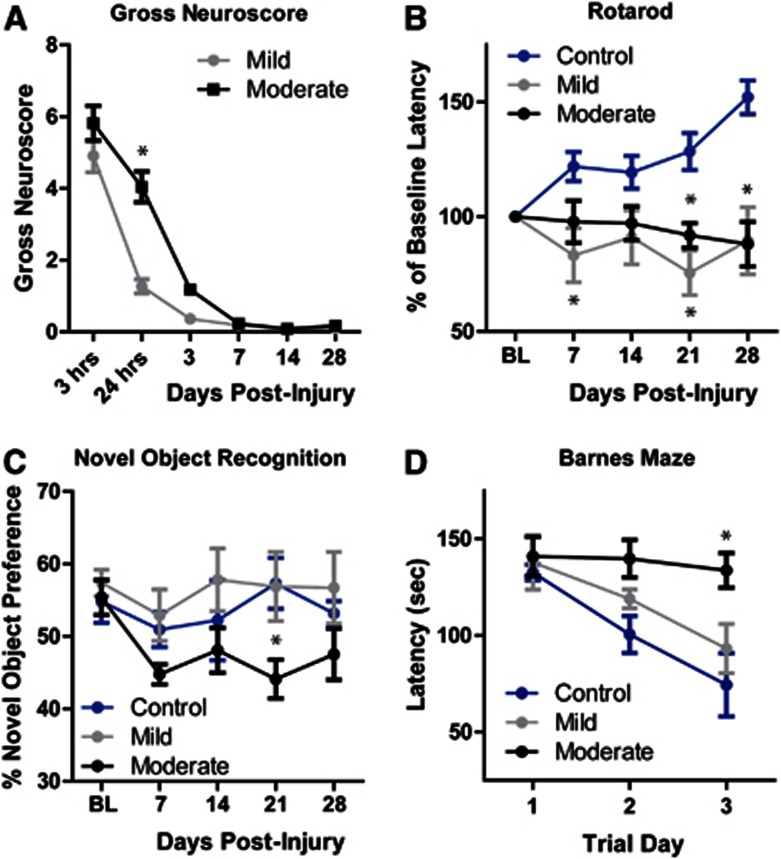Figure 2.
Long-term behavioral deficits in mice undergoing traumatic brain injury (TBI). Behavioral deficits were evaluated in control (sham), mild, and moderate TBI mice for 28 days post injury. (A) Gross neuroscore revealed a graded effect of TBI severity between mild and moderate TBI that resolved within the first 7 days post injury. *P<0.05 vs. mild TBI (repeated-measures two-way ANOVA, n=10–12 per time point). (B) Rotarod testing revealed that mild and moderate TBI animals performed significantly worse than control animals. No difference was detected between mild and moderate groups. *P<0.05 vs. control (repeated-measures two-way analysis of variance (ANOVA), n=11–28 animals per group). (C) In the novel object recognition test, moderate TBI animals were significantly impaired compared with controls, while mild TBI animals exhibited no change. *P<0.05 vs. control (repeated-measures two-way ANOVA, n=11–28 animals per group). (D) Animals underwent Barnes maze testing 28 days after TBI. Mild TBI did not significantly affect Barnes maze performance, while performance was significantly impaired in moderate TBI animals compared with controls. *P<0.01 vs. control (repeated-measures two-way ANOVA, n=11-18 animals per group).

